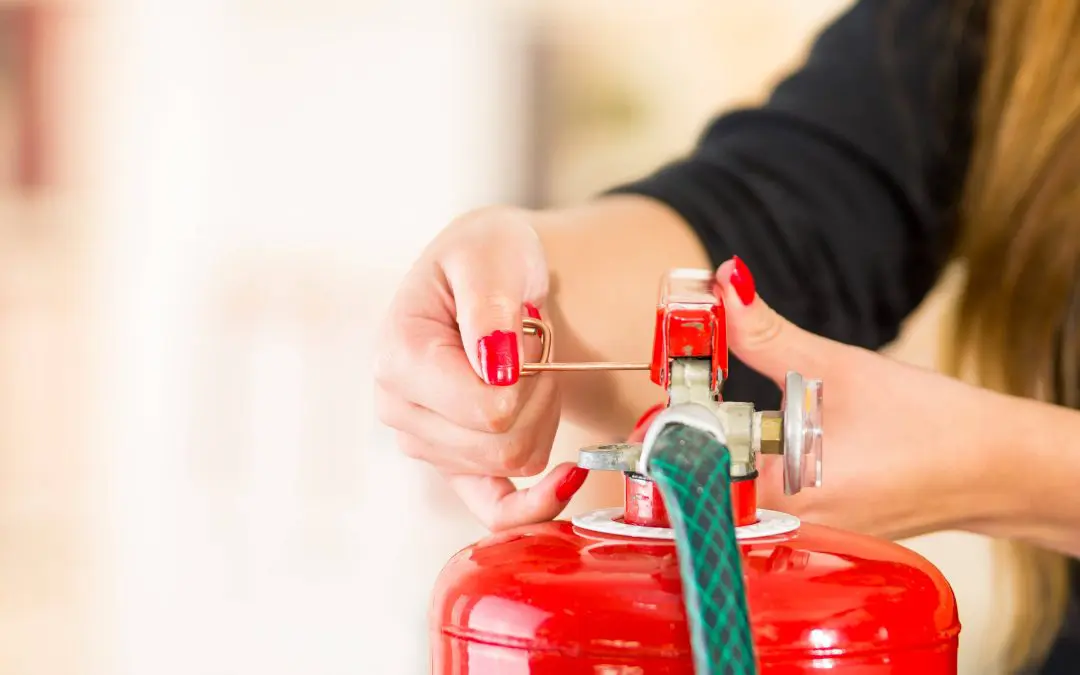When it comes to keeping your home safe, prevention is key. Having the right tools and precautions makes all the difference for fire safety, accidents, or emergencies. A well-prepared homeowner understands that home safety is not to be taken lightly, as it involves securing the home’s physical structure and everyone inside. Below are tips for home safety essentials to help protect your home and family.
Home Safety Essentials: Fire Safety Tools and Precautions
One of the most fundamental areas of home safety is fire prevention. Every home should be equipped with a few essential tools to minimize the risk of fire and ensure quick responses in case one occurs.
Install smoke detectors on every level of the home, particularly near sleeping areas. They will provide early warning in a fire, giving you precious time to evacuate safely. Test them monthly and change the batteries at least once a year. It’s also worth considering interconnected smoke alarms so that if one detector is triggered, all will sound the alarm.
Another important fire safety tool is a fire extinguisher. Keeping one in the kitchen and another in the garage or workshop area means you can act quickly if a small fire breaks out. Be sure to familiarize yourself with how to use an extinguisher properly, and remember to check its expiration date periodically. A fire blanket is also a helpful addition, especially in the kitchen.
Lastly, every family should have a home fire escape plan. Walk through your home’s escape routes, ensuring that windows and doors are easily accessible. Practice the plan with your family, confirming everyone knows what to do and where to go in an emergency.
Carbon Monoxide Detectors
Carbon monoxide is an invisible, odorless gas that can be lethal in a home. Having carbon monoxide detectors installed in your home, particularly near sleeping areas and gas appliances, is vital. These detectors will alert you to dangerous levels of carbon monoxide before it’s too late. Be sure to test them regularly and replace the batteries according to the manufacturer’s instructions. If your carbon monoxide detector ever goes off, evacuate the home immediately and call emergency services.
Emergency Lighting and Backup Power
Navigating your home in the dark during a power outage can be dangerous. Emergency lighting in key areas of the house will help prevent accidents during such times. Keep flashlights in easily accessible spots like the kitchen, bedroom, and near stairways. It’s also worth investing in rechargeable emergency lights that automatically turn on when the power goes out.
Homeowners might also want to consider a backup power source, such as a generator, especially in areas prone to severe weather. This will allow essential systems, such as heating, refrigeration, and medical equipment, to continue to function during an extended outage.
First Aid Kit and Basic Medical Supplies
Accidents can happen anytime, so every home should have a fully stocked first aid kit. Your kit should include bandages, antiseptic wipes, gauze, scissors, tweezers, adhesive tape, and over-the-counter medications like pain relievers and antihistamines. A first aid manual is also good, especially if you’re unfamiliar with specific emergency procedures. Make sure that everyone in your household knows where the kit is located and how to use its contents.
Incorporating these home safety essentials will provide peace of mind while keeping your home prepared for potential emergencies. Remember, the time to consider safety is before an accident or emergency happens. You’ll create a safer environment for everyone in your home with the proper precautions.
Home Safety Essentials FAQs
What should I do if my fire extinguisher is expired?
If your fire extinguisher is expired, replace it immediately. Some extinguishers are refillable, while others need to be completely replaced. Check the label or consult the manufacturer for specific instructions.
Where should I place my first aid kit?
Keep your first aid kit in an accessible, central location. The kitchen or bathroom is ideal, but make sure it is out of reach of children. Have a smaller, portable kit for emergencies in the car as well.
How do I choose the right home security system?
The right home security system depends on your specific needs. A basic system with cameras and alarms might be sufficient for smaller homes, while larger properties may benefit from professional monitoring and additional features like motion detectors and security lights.
Emerald Coast Home Inspectors offers home inspection services to homeowners in Pensacola and surrounding areas, including wind mitigation inspections. Contact us to schedule an inspection today.

